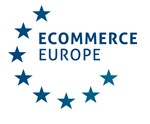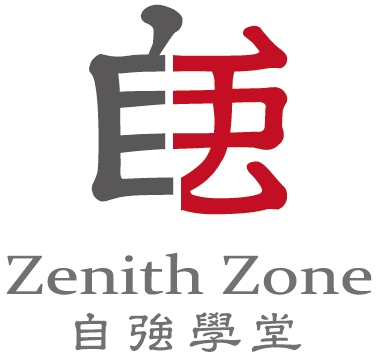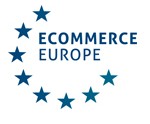There has been a huge growth in cross-border shopping in China and now account for more than three-quarters of online purchases.
At the same time, China is seeing rising outbound tourism, connectivity and outbound migration, which is also feeding into foreign real estate demand.
What lies at the heart of these trends is the growing cross-border mentality of Chinese consumers – a mentality that is transforming a population from one that was once inwardly focused and frugal, to one whose minds – and wallets – are increasingly open.
Simon Henry, co-Founder of leading Chinese overseas property website, Juwai.com, tells OPP.Today that there are some easy things international property professionals can do to work with cross-border buyers.
“Every agent should consider marketing their listings to Chinese buyers on a Chinese portal and making sure they are fully translated. That’s a small and easy step, and just doing that can help you win in listing presentations with sellers and vendors.
“Another easy step is to consider not just local but also overseas buyers in your listings descriptions. Emphasize proximity to and quality of local schools, universities, shopping and transit. Describe the area’s economic potential and long-term outlook. Write as if you were explaining it to someone who has never been there before, which could well be the case.
“The next step is to invest a bit more time each week checking performance, rotating the properties which you promote with online upgrades and adding a Chinese-language signature to your email address. Also consider translating your bio and ‘About’ pages into Chinese and providing links to these from your Chinese email signature.
“If you’re serious about generating a significant amount of income from Chinese buyers, then you should also consider traveling to China to participate in a China Agent Summit or other property event.
“Just being there will open your eyes to the size of the market. The things you will learn will give you a significant productivity boost and, if you build relationships with agents in China, you will be able to increase the deal flow coming your way.
“Don’t feel bad if you don’t speak Chinese. A very successful agent in San Francisco told me just last week that she believes Chinese buyers actually like the fact that she hardly speaks a word of Mandarin and isn’t well informed about events in China – especially those with more wealth. They are very protective of their privacy and worried about being exploited. They figure that what you don’t know can’t hurt them.”
Several trends are converging to give the Chinese buyer so much cross-border buying power, he explains.
“You have pent-up demand that has been suppressed for decades, a period during which China had virtually no interaction with the outside world. Chinese today have a vast curiosity and deep hunger to learn more about the rest of the world, and to own a bit of it, after being denied the opportunity for so long.
“China is also a vast wealth machine that has gone from a virtual non-entity to the second largest economy in the world, with more billionaires than any other, in only about 30 years.
“China’s government is determined to integrate the economy more fully with the rest of the world, so that China’s best companies can be world leaders and Shanghai can become a global financial centre along the lines of New York or London. This integration will require new openness and deregulation of China’s financial system, which will free up hundreds of billions of dollars of cash for international investments, which is currently locked up behind the Peoples Republic’s borders.”
Juwai.com has come up with four principals on how companies can develop cross-border business.Smart expansionIn 2015, 120 million Chinese travelled out of China. For many businesses, including real estate, hitting this moving target of 120 million outbound Chinese travelling to increasingly diverse locations means adapting smartly to changing trends and going to where the buyers are, rather than where they are coming from.
That’s why many foreign companies, like LV8 and Prada9, have held back on breakneck store network expansion in China and have instead focused their energies on places where Chinese buyers are going to, namely locations like South Korea, Japan, the United States, and Europe.
This isn’t just the realm of the high-end – CBRE’s latest report on retail trends shows retailers of all brands and sizes were pushing themselves to think smartly about engaging with demand from China.
It’s one of the reasons why locations such as Tokyo, Seoul, and Manila have been particularly sought after in the past year.Differentiating with detailFor global hotel chains like the Hyatt and the New York Marriott Marquis, details make all the difference when selling to their customers from China.
New York is a hotspot for Chinese travellers1and Hyatt New York offers tailored in-house translation services, guide services, and welcome packages including eight – the luckiest number in Chinese culture – candies for clients.
The Marriott has even gone as far as renaming the suites on the 44th and 45th floors, because of the negative connotation of the number 4 in Chinese culture.
While catering to cultural sensitivities can get you far, more practical matters are also important. In Sydney, another top destination for tourists from China, Meriton Kent Street Tower expanded the size of its storage rooms, as well as hired bigger porters because when their Chinese clients come, they buy big and they buy a lot.Partnering for profitNavigating a new market can be tough, but it’s easier if you find a partner that knows their way around. That’s what Priceline, the US’s largest online travel booking company, did when it partnered with China online travel goliath Ctrip, which gave Priceline direct access to the Chinese outbound tourism market, and Ctrip’s extensive range of travel products.
Thomas Cook’s link-up with China conglomerate giant Fosun is another example of a retail giant partnering with a local company to penetrate the China market.
Finding the right partner who can break down the cultural divide as well as deliver a sales channel and infrastructure can make all the difference, especially in a market of 1.3 billion people.Matching the marketMatching the market to your offering is also a vital tactic, especially for such a large market with rampant demand for overseas products.
It’s one of the reasons why Taobao’s Global Mall is proving to be such a hit – it offers a platform where cross-border conscious consumers can engage with overseas retailers. It’s no wonder that major name players, such as Walmart and Carrefour, feature prominently on the site.
The platform is one thing; the data it provides, though, is another, and herein lies the crux of the issue. Taobao’s platform has deep and varied data on consumer searches that help retailers understand market trends and match their offering to suit the market.
“With outbound spending set for another year of growth in 2016, there has never been a better time to put these principles into practice,” says Juwai.com.
“Bear in mind though, that competition is heating up from China companies, who are equally convinced by the long-term potential of China’s emerging cross-border consumer mentality.
Dalian Wanda, one of the China’s most prominent outbound investors, is prime example. Seeking to profit from Chinese tourists’ demand in Madrid, Dalian Wanda embarked on a mission to acquire retail complexes in the city.
But that’s not all. Acknowledging fitness as a growth industry in China, where Chinese fitness fanatics are increasingly on the lookout for global challenges, Dalian Wanda recently bought the global Iron-Man competition too.
With this becoming less of a passing fad and more of a long-term transformational theme, Chinese consumers cross-border mentality is set for another bumper year, says Juwai.com. The main image is taken by Lusi and is from RGBStock.com.
 Latest News
Latest News- ▪ 出境主题游与医疗旅游峰会暨展览2020顺利
- ▪ 5th Global Retailing e-Commerce Confer
- ▪ 首届全球金融科技与区块链中国峰会2017落
- ▪ 第二届全球VR/AR中国峰会2017完美落幕
- ▪ Inaugural Global Fintech & Blockchain
- ▪ Exclusive E-Commerce High-Level Delega
- ▪ 2nd Global VR/AR China Summit 2017
- ▪ 第七届中国跨境电商峰会暨展览
- ▪ Sino-Turkish e-commerce site open
- ▪ China's manufacturing sector to see hi
- ▪ Baofeng reveals three acquisitions as






















































































































